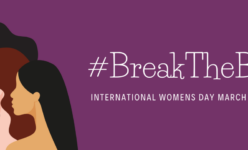
The Power of Branding Building Influence and Market Leadership
n an increasingly competitive business landscape, branding is no longer an optional marketing exercise—it is a strategic imperative. A strong brand is not just about recognition; it is about trust, influence, and long-term value creation. For women entrepreneurs, establishing a compelling brand presence can be the difference between being a market leader or an overlooked competitor. A well-crafted brand helps businesses scale, attract high-value clients, and maintain relevance in a crowded marketplace.
Branding as a Business Asset
Branding is not just about a logo or visual identity. It is the perception, credibility, and emotional connection a company or individual establishes with its audience. Consumers make purchasing decisions based on trust and familiarity, which makes branding one of the most powerful tools for business growth.
Companies with strong branding:
- Command higher customer trust and perceived value, leading to increased customer retention.
- Attract strategic partnerships and investment opportunities, positioning them for expansion.
- Maintain pricing power and resilience in market downturns, as loyal customers are less likely to seek alternatives.
For women entrepreneurs, branding is more than just marketing—it is a statement of leadership, expertise, and vision. It establishes credibility in industries where women have historically been underrepresented, creating an authoritative voice in competitive markets.
Personal vs. Business Branding
For many women in business, personal branding is just as critical as corporate branding. People connect with people before they trust a business. Establishing a recognizable and authoritative personal brand allows female entrepreneurs to build relationships with their audience, differentiate themselves, and drive business opportunities.
Key elements of personal branding include:
- A clear value proposition that showcases expertise and industry authority.
- Consistent messaging across digital platforms, media appearances, and networking engagements.
- Authenticity and storytelling that create an emotional connection with the audience.
When personal and business branding are aligned, the results are exponential. A well-established personal brand increases visibility, fosters deeper connections with potential clients, and enhances the overall reputation of the business.
For women entrepreneurs, branding is more than just marketing—it is a statement of leadership, expertise, and vision. It establishes credibility in industries where women have historically been underrepresented, creating an authoritative voice in competitive markets
The Role of Digital Presence in Branding
With the rise of digital-first business models, an online presence is no longer optional. The most influential brands leverage social media, thought leadership, and content marketing to create meaningful engagement.
- A strong website and digital portfolio enhance credibility and provide a platform for brand storytelling.
- Leveraging LinkedIn, Instagram, and industry publications increases brand visibility and strengthens authority.
- Thought leadership through articles, speaking engagements, and media features establishes expertise and builds industry influence.
Women entrepreneurs who embrace digital branding gain a competitive edge by building visibility, trust, and engagement in global markets.
Branding as a Growth Lever
Strategic branding does not just enhance visibility—it drives business growth. Companies that invest in strong brand positioning and messaging experience higher customer retention, better conversion rates, and greater long-term sustainability.
A well-defined brand serves as a business asset, allowing companies to expand, enter new markets, and attract investors. Women entrepreneurs who prioritize branding position themselves as leaders, command premium pricing, and create businesses with enduring influence.
The most successful brands are not just seen—they are remembered, trusted, and chosen.

























